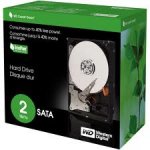It's good to see some data on this, especially the part about wear-out failures. Now I wonder how many hours of running starting and stopping a drive is equivalent to? I tend to let my main desktop run 24/7, mostly on the theory that repeatedly turning it on and off is bad for the electronics, and especially bad for the hard drives. I would love to see data one way or another. If starting and stopping has a negligible effect on wear, then most home PCs which are rarely on more than 12 hours a day will be obsolete long before the hard drives are around long enough to wear out.
I also feel installation has a huge effect on hard drive longevity. I've always been super careful installing hard drives, to the point where I would avoid even a gentle tap. My theory is any impacts will cause some microscopic particles to come lose inside the hard drive. These in turn would accelerate wear. I would imagine in a data center they don't have the time to baby their drives, so the data represents what happens when you install the drives fairly roughly.
I have a 2006 vintage 200 GB drive in my main desktop now (along with a c. 2010 2TB drive and a 1-year old 240 GB Intel SSD). All three have mostly been running 24/7 since I bought them. Extrapolating the data in the article, less than 40% of drives will make it to their seventh year. I wonder if my gentle installation and 24/7 operation have increased the potential drive lifetime substantially?
SSDs should have even longer lifetime. There is no mechanical wearout mechanism. The longevity of flash memory is well known and usually compensated for by wear-leveling mechanisms, to the point that hundreds of TBs of writes are needed to wear out the drive. I wonder if in the final analysis an SSD which isn't worn out by writes will have a longevity similar to other well-designed electronics (i.e. several decades at least)?

